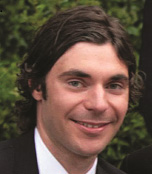
In the second year of funding we have made significant progress towards the research aims. This research grant has been instrumental to generate numerous novel molecular tools necessary to perform the experiments outlined in the original research proposal that were directly applied to cells isolated from patients with bone marrow failure. In addition, this postdoctoral funding opportunity has been instrumental to foster my career path towards becoming an independent researcher focused on studying the molecular mechanisms underlying bone marrow failure.
Defects in the generation of ribosomes, the cellular machinery responsible for the production of the proteins, are present in a list of human syndromes, including X-linked Dyskeratosis Congenita (X-DC), that are characterized by hematological disorders including bone marrow failure (BMF) and high susceptibility to blood cancers. We have shown that in transgenic animals and human X-DC patient cells that harbour mutations in the dyskerin (DKC1) gene, the ribosome does not function properly and the synthesis of the protein p53, a master tumor suppressor and key regulator of hematopoietic stem cell (HSC) function, is impaired. It is our goal to understand how impairments in dyskerin function alter HSC behavior and to what extent this defect contributes to bone marrow failure.
1) Employing special transgenic mice (Dkc1m), we have shown that reductions in the amount of DKC1 protein affect the number of hematopoietic stem cells (HSCs), which reside in the bone marrow and are important for generating the different populations of circulating blood cells. Furthermore, we found that a decrease in dyskerin cellular content correspond to a significant reduction of p53 protein levels in HSCs that were promptly isolated from the bone marrow of Dkc1m mice.
Importantly, we observed that decreased levels of p53 in HSCs are associated with altered expression of genes important for the production of anti-oxidant proteins. These proteins are critical for controlling the deleterious effects of reactive oxygen species (ROS), a byproduct of cellular metabolism that can severely damage and shorten the lifespan of HSC. It is our intention to employ a pharmaceutical approach to restore p53 expression to normal levels and/or control ROS levels to alleviate the hematopoietic defects present in Dkc1m mice that faithfully recapitulate the BMF disease.
2) We are using a novel approach to dissect the molecular defects underlying impaired p53 production in Dkc1m mice and human X-DC patient cells. In this respect, we have made substantial advances in generating the biochemical tools necessary to perform the experiments proposed. It is our expectation that results from these studies may possibly lead to the identification of new targets for therapeutic treatment.
3) We have also made substantial progress in delineating the basis for the molecular defects present in a group of human X-DC patient cells carrying distinct point mutations in the DKC1 gene. For the first time, we show that ribosomes are defective in X-DC patient cells and impair p53 production and activity in these cells. Furthermore, we show that DKC1 mutations directly affect the synthesis of small nucleic acids molecules that are important for accurate production of fully functional ribosomes. More importantly, our findings identify these small RNAs as potential biomarkers that may be use to identify and screen patients with X-DC. Finally, we find that deregulation of dyskerin function alters the capacity of mouse and human HSCs to generate mature blood cells, a defect that we fully recovered by restoring normal dyskerin levels in these cells.
Altogether, these results highlight a critical role of dyskerin function in controlling the lifespan and activity of hematopoietic progenitor cells. During this second year of funding we have finished most of the experiments proposed in our research plan and published some of our results in the journal Molecular Cell. Furthermore, we have made important progress towards preparing the tools necessary to continue several lines of research.
Our future goal is to expand these studies to gain more insight into the molecular mechanisms underlying hematological abnormalities such as BMF and myelodysplastic syndromes (MDS) and identify novel and more effective therapeutic strategies to tackle these life-threatening diseases.
